Vocabulary Building Normal Building Vocabulary Worksheets for Ages 6-9
10 filtered results
-
From - To
Unlock your child's potential with our Vocabulary Building Worksheets designed for ages 6-9! These engaging resources aim to enhance literacy skills by expanding vocabulary in a fun and interactive way. Each worksheet features age-appropriate exercises that help children learn new words through creative activities, including fill-in-the-blank, matching, and word puzzles. Perfect for both classrooms and home learning, these worksheets support young learners in mastering language arts, enriching their reading and writing capabilities. Empower your child to express themselves confidently and explore the world of words. Start their vocabulary journey today and make learning enjoyable!
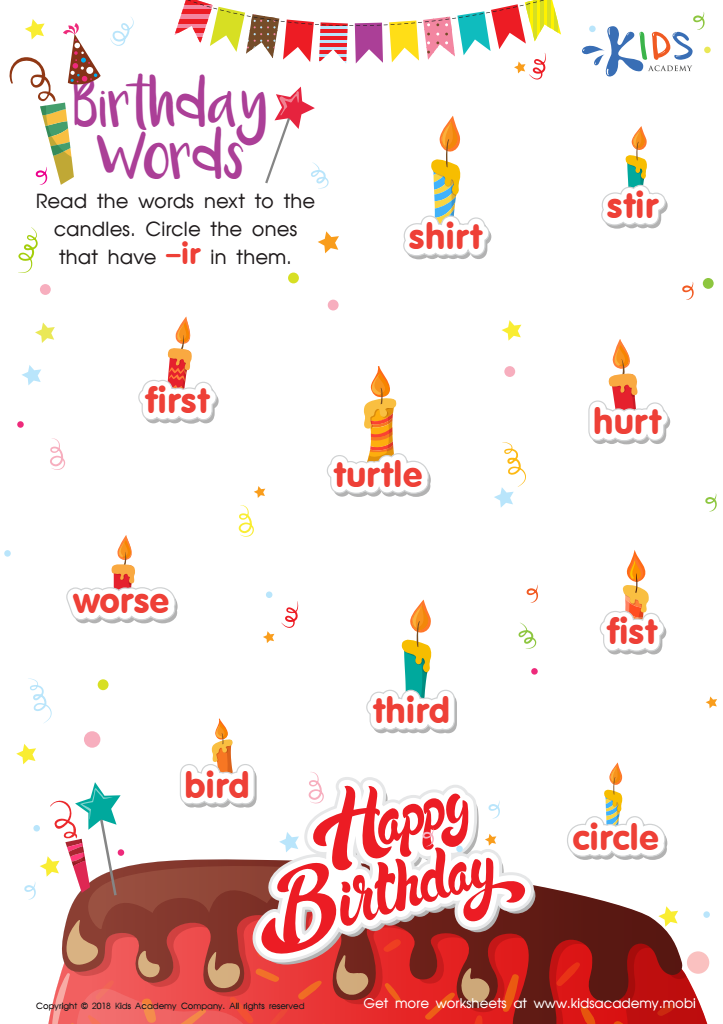

Birthday Words Worksheet
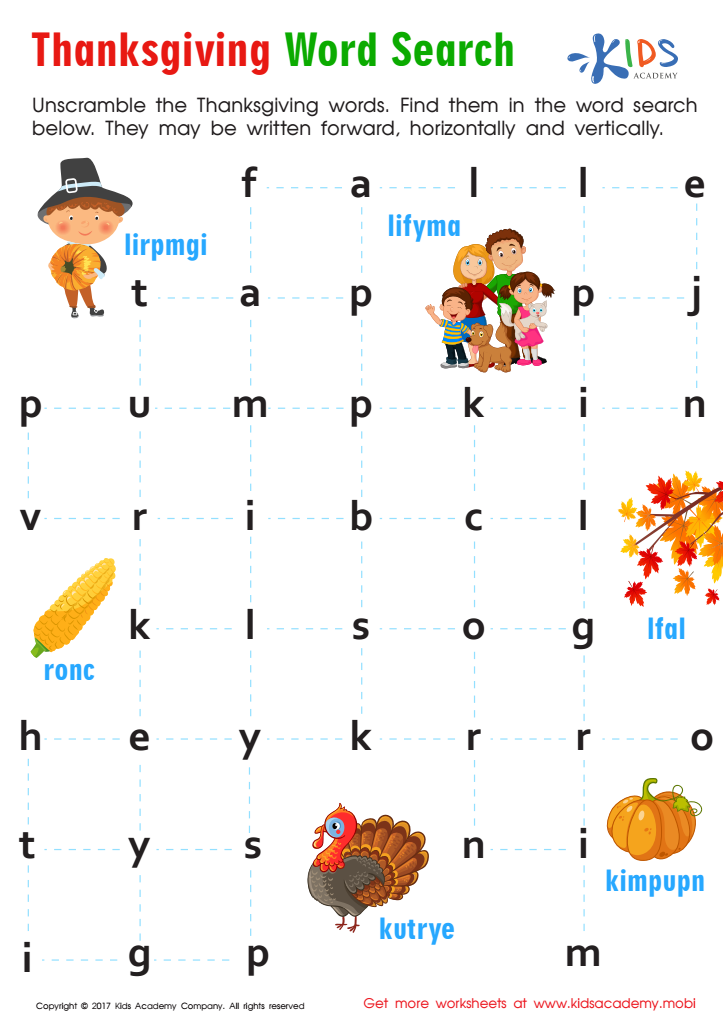

Thanksgiving Word Search Sight Words Worksheet
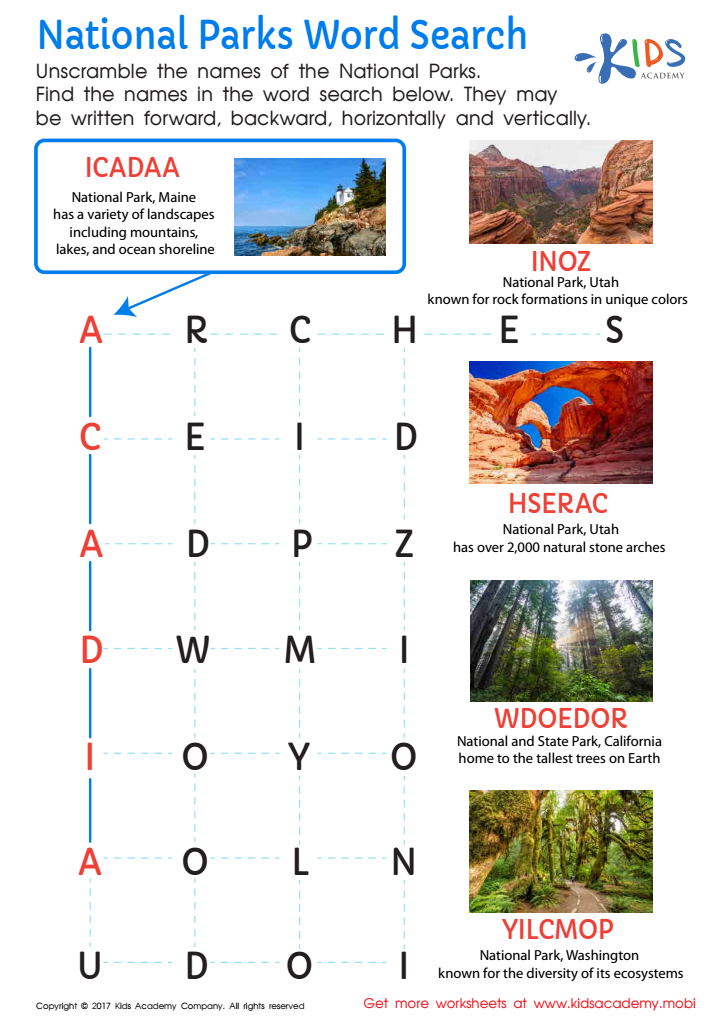

National Parks Word Search Worksheet
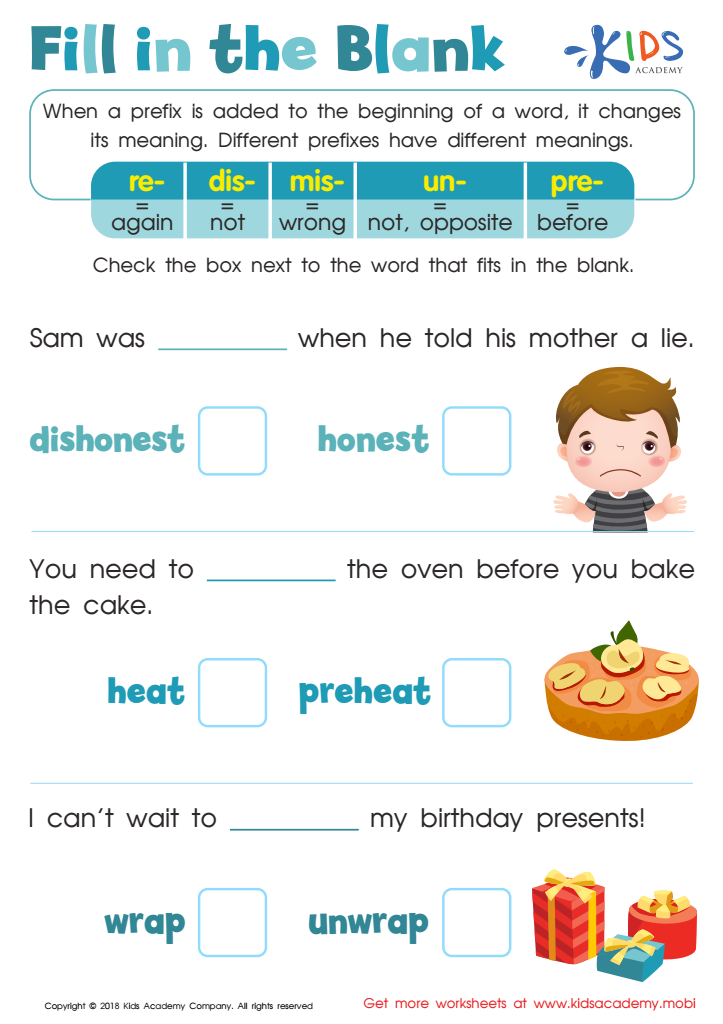

Reading: Fill in the Blank Worksheet
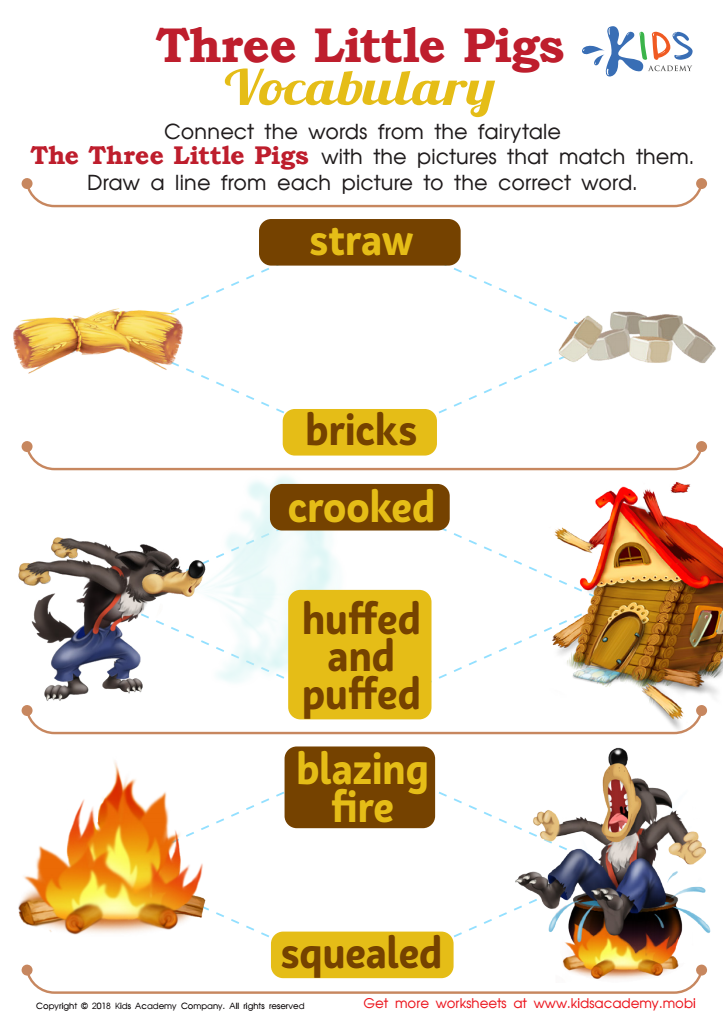

Three Little Pigs Vocabulary Worksheet
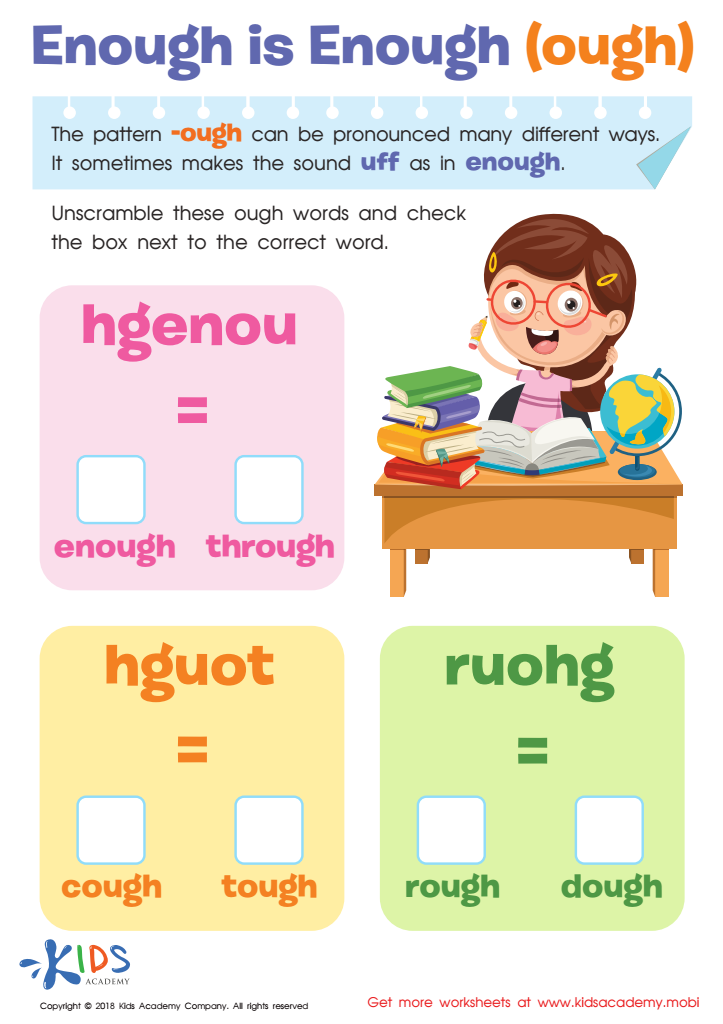

Enough Is Enough (ough) Worksheet
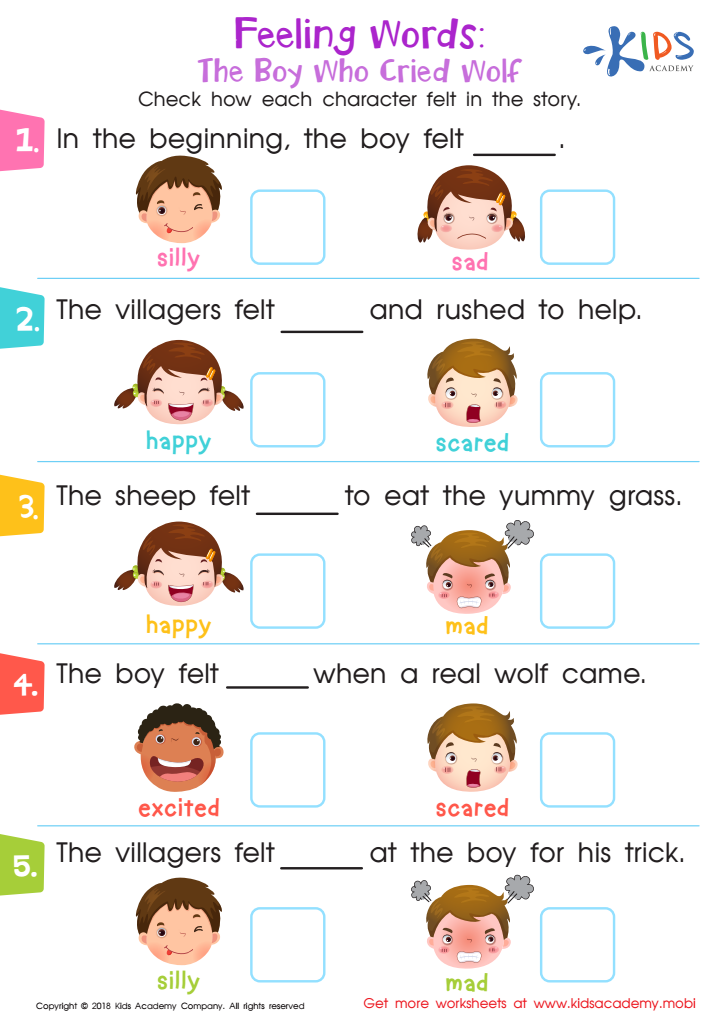

Feeling Words: The Boy Who Cried Wolf Worksheet
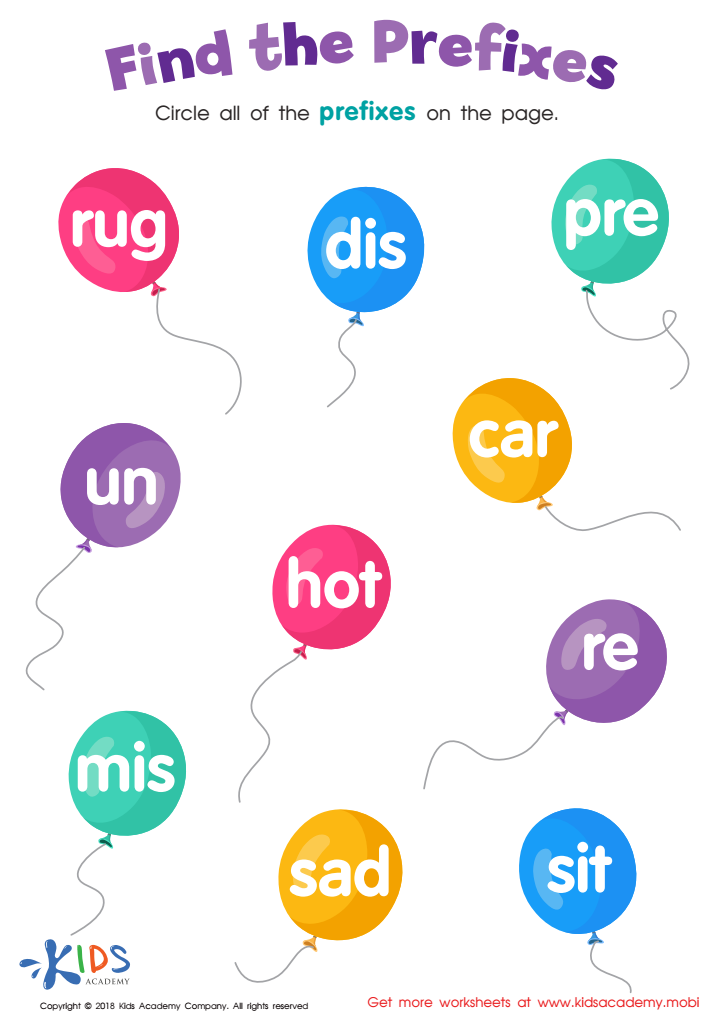

Reading: Find the Prefixes Worksheet
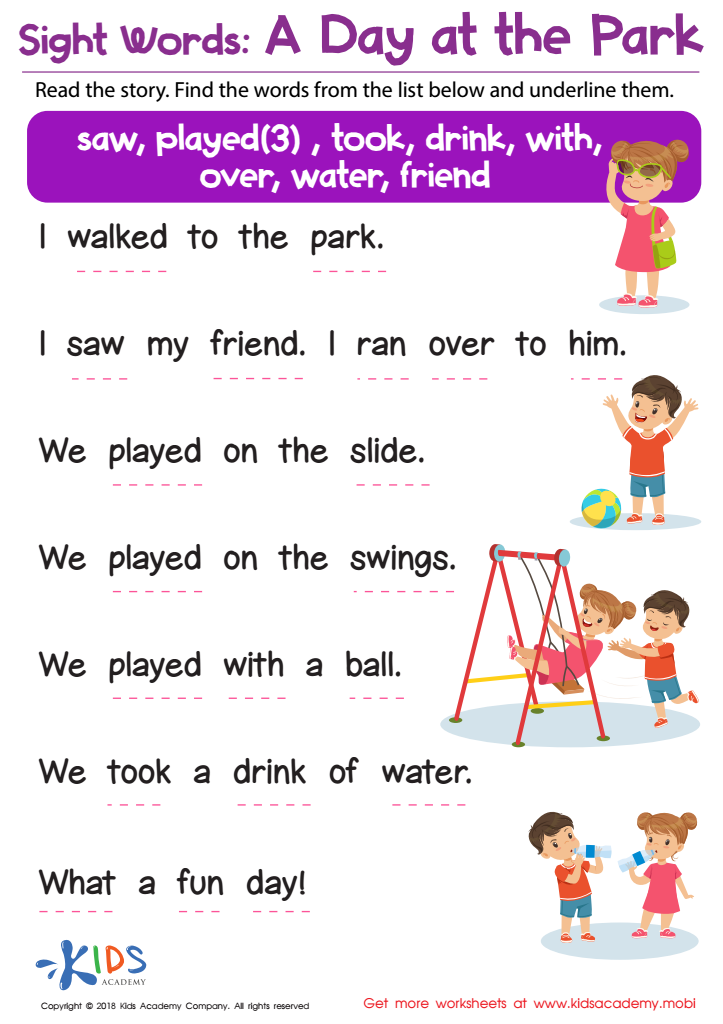

Sight Words: A Day at the Park Worksheet
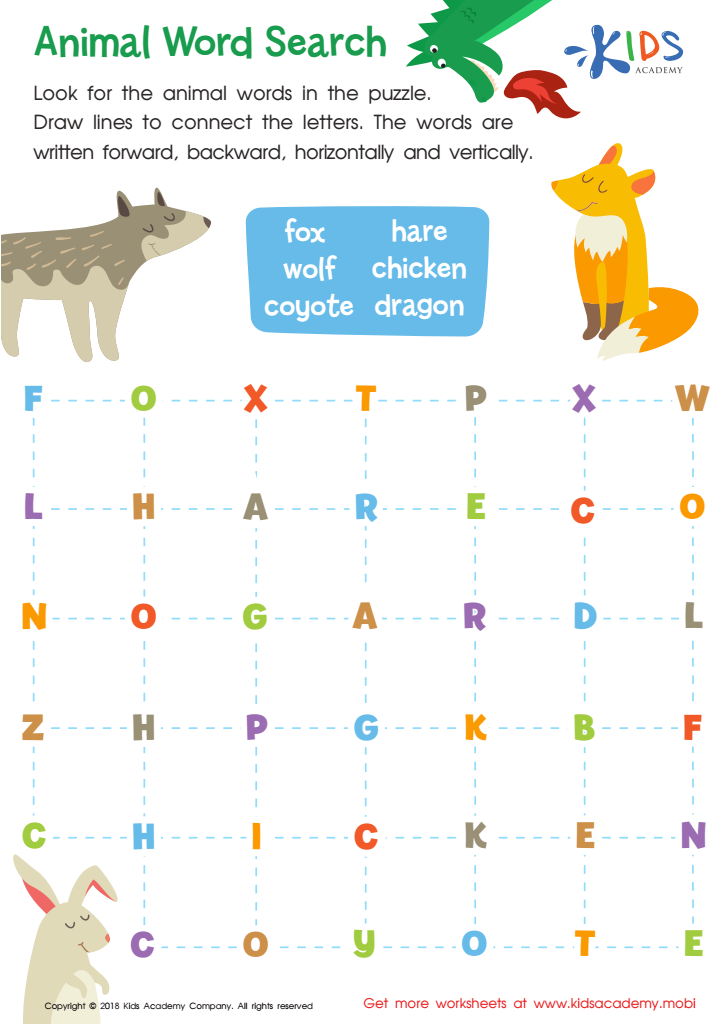

Animal Word Search Worksheet
Vocabulary building is a crucial aspect of language development, particularly for children aged 6-9 years. During this developmental stage, children are rapidly expanding their language skills, and a robust vocabulary is essential for effective communication, comprehension, and overall academic success. Parents and teachers should prioritize vocabulary building for several reasons.
First, a rich vocabulary enhances reading comprehension. When children understand a variety of words, they can better grasp the meaning of texts, leading to improved literacy skills. This foundational ability supports their growth in other subjects, as reading is integral across all areas of learning.
Second, strong vocabulary skills boost self-expression. Children with a diverse vocabulary can articulate their thoughts and feelings more clearly, leading to greater confidence in both written and oral communication.
Additionally, vocabulary building plays a significant role in social interaction. Children who can effectively express themselves are more likely to engage positively with peers and adults, facilitating better relationships and collaborative skills.
Lastly, instilling a love for words early on can foster lifelong learning and curiosity. Parents and teachers can encourage vocabulary development through reading, conversations, and interactive activities, setting children on a path for future success.
 Assign to My Students
Assign to My Students















.jpg)










